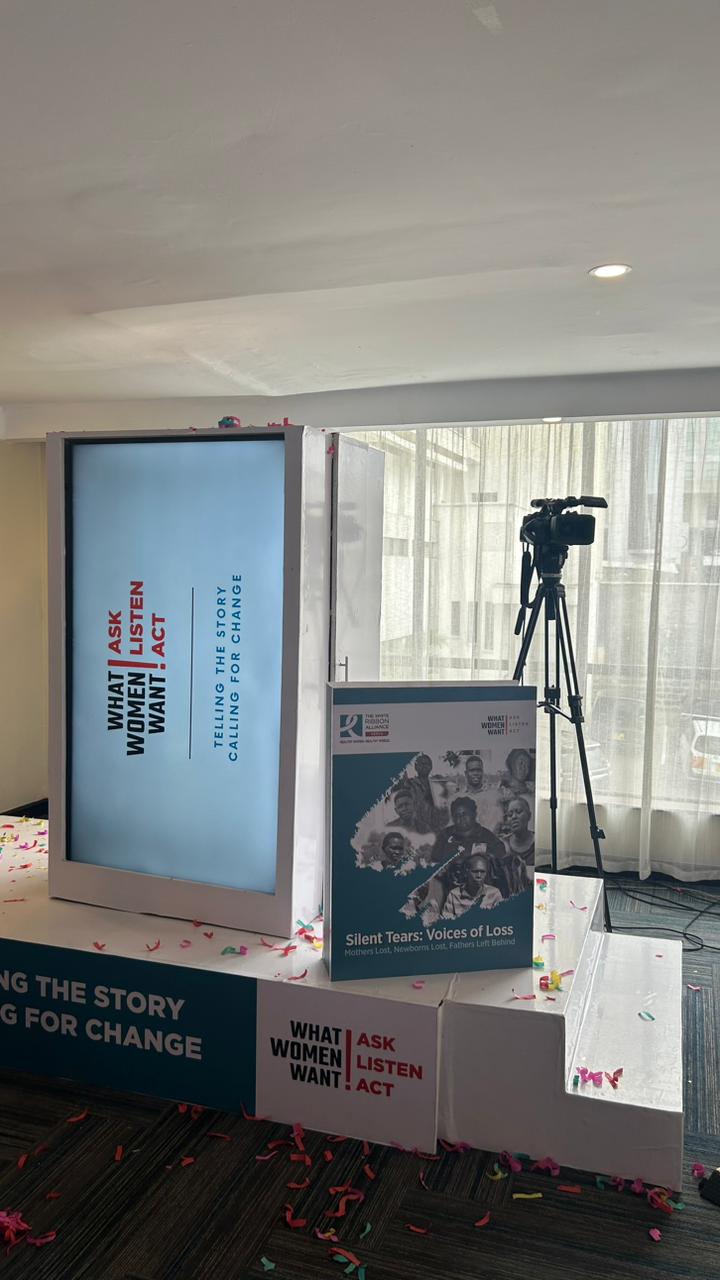T he: white ribbon alliance Kenya hosted an event to share the stories of women and newborns who died in childbirth. The meeting brought together women, healthcare professionals, policymakers, and community stakeholders to hear stories of loss, and resilience in reproductive, maternal, and newborn health (RMNH). The event’s goal was to; raise the voice of thousands of women, tell their stories, and demand change in RMNH services using the “ASK LISTEN ACT” concept. The goal was to make sure that no woman or newborn lost their life or dignity while seeking reproductive healthcare.
Stories and narratives have the unique ability to bring us together, shape our perspectives, and motivate us to act. The White Ribbon Alliance presented very personal stories highlighting both the systemic gaps of Kenya’s healthcare system and the resilience of women who con7nue to demand bePer services for themselves and their children. These stories provided crucial insight into those challenges that persist in maternal health services.
From the stories, many women described their experiences giving delivery in under-resourced healthcare institutions. From an inadequate supply of required medical equipment to a shortage of competent healthcare staff, these problems often result in dire complications or tragic deaths. Issues relating to poor infrastructure issues are particularly serious in rural areas, where women have to travel great distances (25km) on poor roads using motorcycles to receive even basic maternal healthcare services and some end up having miscarriages.
Financial barriers to access proper healthcare services also is a challenge for mothers, especially in underfunded public health systems. Many women are required to get essential medical supplies, such as scissors, which can cause delays in care, as demonstrated by the instance of a mother who lost her newborn. Out-of-pocket costs for drugs, transportation, and informal fees add to the challenge, especially for low-income families. These financial difficulties might cause women to delay or forego necessary prenatal care, increasing the risk of maternal and newborn death.
The women reported instances of neglect and disrespectful care during labor. Many women described being disregarded when they mentioned difficulty or pain, resulting in unnecessary deaths of mothers and newborns. Verbal abuse, lack of informed consent, and physical neglect, worsens the experience resulting to feelings of isolation and fear.
Several women reported that healthcare staff were unavailable during critical situations particularly at night. These shortages leave women vulnerable during labor, resulting in difficulties that may have been prevented with immediate assistance.
Cultural barriers and ignorance about maternal health practices have led to difficulties during childbirth. Some women indicated that their communities had misconceptions regarding medical procedures,which caused them to delay obtaining treatment.
Improving healthcare infrastructure is critical for increasing mother and infant health, especially in marginalized and rural communities. Simple acts such as expanding maternity facilities to meet the demand for high-quality basic maternal care would go a long way. This includes building new facilities or renovating existing ones to meet prenatal, labor, delivery, and postnatal care needs. Furthermore, supplying the required medical equipment, such as ultrasound machines, fetal monitors, and resuscitation tools, would ensure that healthcare facilities can properly handle childbirth and resulting difficulties. Regular maintenance and upgrades to these tools, as well as storing emergency supplies, are also necessary.
Several stakeholders pushed for increased government financing for RMNH services. Investment in maternal healthcare, both in terms of resources and personnel, was considered crucial for better maternal health outcomes. There have been calls for the government to prioritize maternal healthcare in national budgets and provide adequate funding for maternal health programs.
A major solution to the scarcity of skilled healthcare workers is to increase the number and availability of trained midwives and obstetricians, especially in areas with limited resources. Collaborations between the government, non-governmental organizations (NGOs), and international partners can increase the distribution of healthcare staff, ensuring that both urban and rural areas receive trained personnel. This improved access will provide mothers with timely and skilled treatment during childbirth, significantly lowering mortality among mothers and newborns.

...

